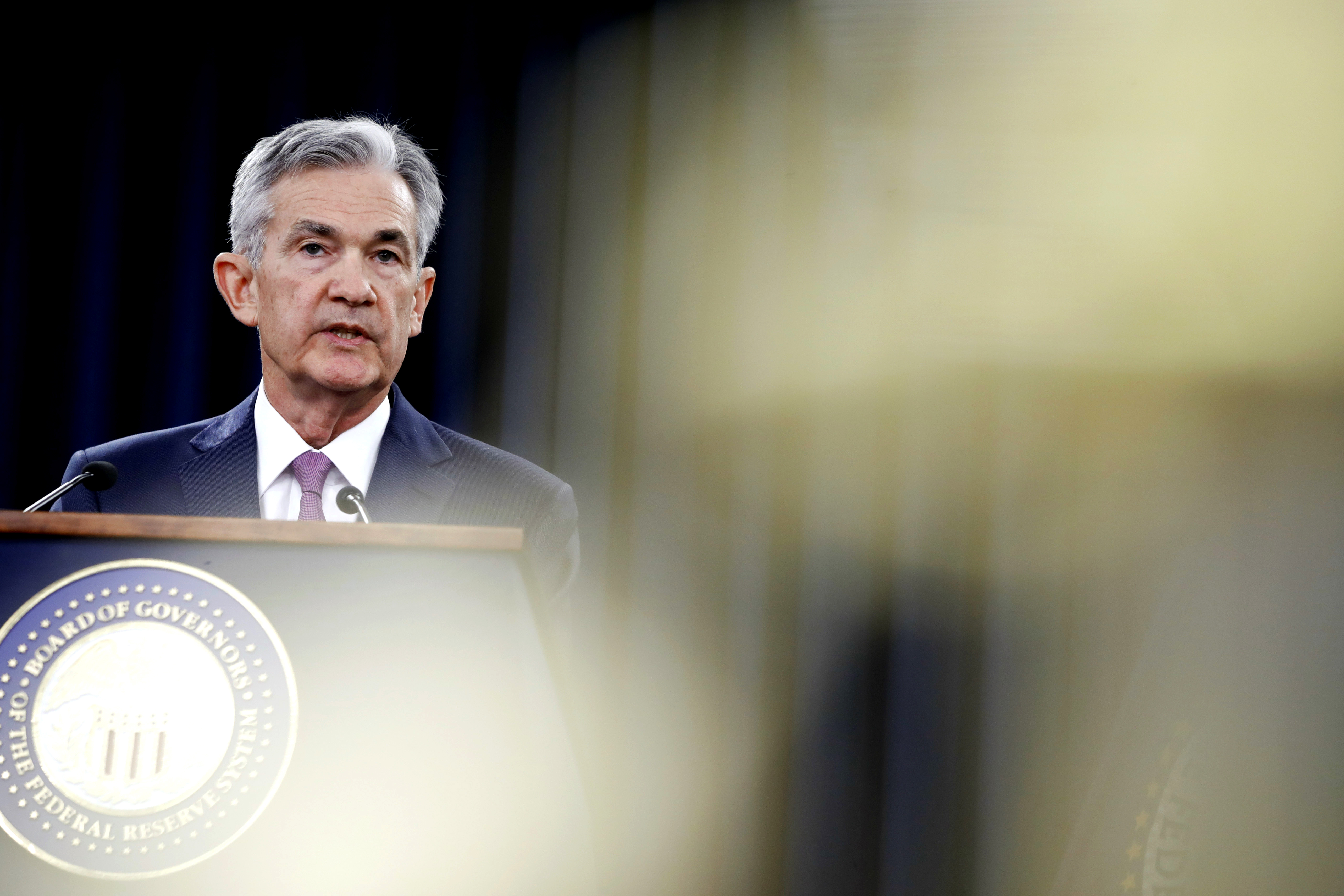Here's one more reason for the Fed to take it slow
Is corporate concentration keeping down inflation?


A free daily email with the biggest news stories of the day – and the best features from TheWeek.com
You are now subscribed
Your newsletter sign-up was successful
Will the Federal Reserve go after the monopoly men?
America's central bank hosts its annual conference in Jackson Hole, Wyoming, this week. It's always one of the most watched economic events in the world, but the drama will be especially high this year over the theme of the conference: Whether the increasing power of massive firms — from Walmart to Apple — is dragging down the economy.
Evidence has mounted for years that the American economy is dominated by a dwindling number of increasingly powerful companies. And simply by asking this question, the Fed is probably antagonizing the biggest of big business. But it shouldn't stop there.
The Week
Escape your echo chamber. Get the facts behind the news, plus analysis from multiple perspectives.

Sign up for The Week's Free Newsletters
From our morning news briefing to a weekly Good News Newsletter, get the best of The Week delivered directly to your inbox.
From our morning news briefing to a weekly Good News Newsletter, get the best of The Week delivered directly to your inbox.
If the Fed concludes corporate concentration is a growing problem, then it should back off its interest rate hikes.
Recall that the central bank's core mission is to manage the economy by setting the overall rate of interest. It's obligated to keep prices stable, but to also minimize unemployment. These responsibilities are intricately, and maddeningly, related. The reigning macroeconomic theory says that the lower unemployment goes, the higher prices eventually get. That's because the more power workers have to demand wage hikes, the faster wages rise and the more trouble companies have holding onto their profit margins. If other factors like productivity growth don't keep up, companies across the economy eventually have to raise prices. Thus the Fed finds itself caught in an eternal tradeoff between inflation and jobs.
Though it's up for debate how much this theory actually describes the economy's basic mechanics, it remains the guiding framework for Fed officials and most economists.
But this also puts the Fed in an awkward spot. Unemployment right now is remarkably low — it's only fallen this low twice before in the last half century. Most economists also agree that unemployment is low enough to indicate full employment, i.e. when the economy is finally putting all of its available workers and factories and resources to use. Yet the data refuses to comply with this assumption: Wage growth remains far below its heights in those previous spells, and inflation refuses to consistently hit the Fed's target of 2 percent.
A free daily email with the biggest news stories of the day – and the best features from TheWeek.com
No one really knows why wage growth and inflation aren't rising more than they are. The best case is probably still the simplest: The unemployment rate is deceiving us, and we're still much further below genuine full employment than we realize.
But another compelling theory is market concentration.
Most people are familiar with the first half of this concept: monopoly. When one company has a stranglehold on a particular good or service, it can jack up prices because customers have nowhere else to go. But equally problematic is the other half of market concentration: monopsony. When one buyer has a stranglehold on a particular good or service, they can drive prices ever lower because sellers have nowhere else to turn.
And what's the one thing companies buy more than anything else? Labor.
In a labor monopsony, there are only a handful of employers to hire workers, minimizing competition and thus wage growth too.
This seems to be a growing problem. Since 1996, one of the most widely used measures of corporate concentration, the Herfindahl-Hirschman index, has jumped 48 percent. That increase spanned 75 percent of U.S. industries; in fact, one recent paper found that the average local labor market far surpasses its definition of "highly concentrated."
This rise in employers' leverage could explain why wages remain stagnant despite an economy that, by some metrics, is overheating or close to it. But it's not a slam dunk case.
First off, anything short of a single employer will still cause some competition for labor and thus an uptick in wages, even if they're smaller than they otherwise would be.
Second, monopsony is unevenly distributed across the country. Big urban centers have the lowest levels of employer monopsony, and they're also where the majority of workers cluster. Conversely, the highest levels of monopsony are in small towns and rural areas. These are the same places where jobs and wages have mysteriously died off, even during recoveries, since the early 1990s.
So it remains to be seen whether employer monopsony is a big factor in wage stagnation nationally. But it's almost certainly a big factor in why certain parts of the country are withering away.
Of course, the primary tool for combating any kind of market concentration is aggressive antitrust enforcement — yet another area where policymakers dropped the ball after the mid-century.
But it implicates interest rates as well. If the Fed's goal is to push unemployment as low as possible without sparking inflation, a rise in concentration among employers means it can go even lower than it thought.
The aforementioned doubts about the real level of employment are reason enough for the Fed to back off its plans for an interest rate hike in September and an overall pace of three or so hikes a year.
But if Fed officials walk away from this weekend's conference believing labor market concentration is a serious problem, they should back off even more.
Jeff Spross was the economics and business correspondent at TheWeek.com. He was previously a reporter at ThinkProgress.
